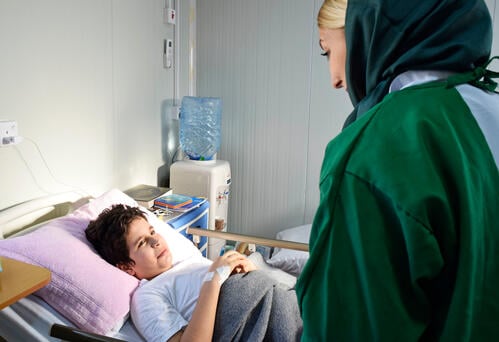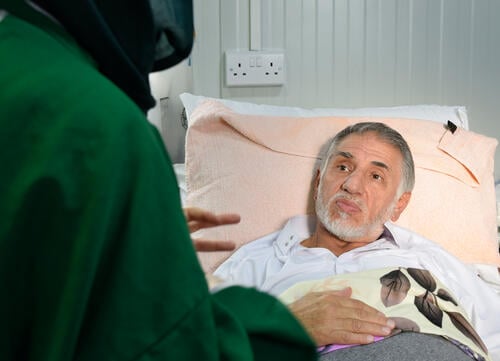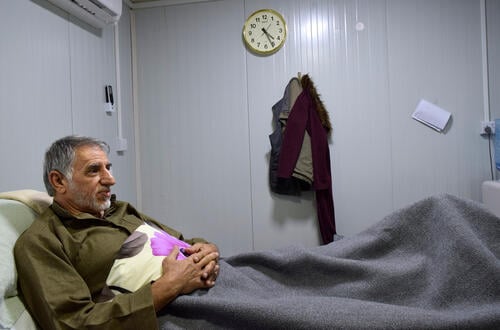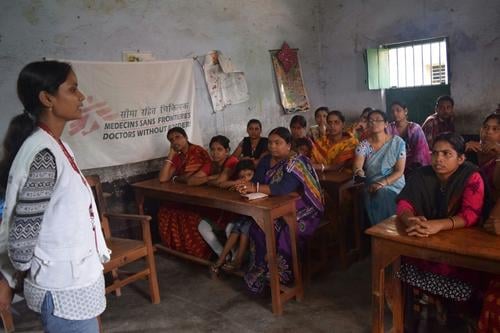Ernestina Repetto, MSF advisor on infectious diseases, answers the big questions on antibiotic resistance.
Based in the Middle East, Ernestina’s work focuses on antibiotic resistance and its effect on MSF’s projects worldwide. In East Mosul and elsewhere she advises on treatment for patients with multidrug resistant infections.
Is antibiotic resistance a new phenomenon? And why has it become such an important health issue?
Antibiotic resistance is on the rise in all parts of the world – but it is not a new phenomenon. If we look at the history of antibiotic discovery, the first resistance to an antibiotic happened almost 100 years ago!
Resistance happens when the bacteria in our body find ways to survive and resist new antibiotics – a process which is natural and unavoidable. The reason why it is a growing issue now is that, over time, these bacteria are developing resistance and sharing their resistance mechanisms with each other, thus enhancing the phenomenon.
In concrete terms, this means that it is becoming harder for doctors to find effective options for treatment among the antibiotics available.
Researchers and scientists are trying to develop new antibiotics, but this takes time – much more time than it takes for bacteria to develop new resistance mechanisms. This threatens our ability to treat even common infectious diseases like upper respiratory tract infections or infected wounds.
Without urgent action and change, we are heading to a post-antibiotic era, in which common infections and minor injuries risk being untreatable and becoming deadly again.
Why is antibiotic resistance such a problem in the Middle East? And what is MSF doing about it?
Antibiotic resistance is caused by a number of factors. While unregulated use of over-the-counter antibiotics is one driver, there are many other drivers, such as poor infection control practices; bad prescription practices; supply of poor-quality antibiotics; lack of adequate diagnostic tools and surveillance; and insufficient patient education provided by doctors, to mention just a few.
In the Middle East, many of these factors have been present in recent decades. MSF is running various types of projects in the region: from primary healthcare projects (including paediatric care, sexual and reproductive healthcare, care for non-communicable diseases etc) to secondary healthcare projects (mainly reconstructive surgery projects for chronic complications of war-related trauma).
In our secondary healthcare projects, we are seeing many patients with multidrug-resistant infections.
To optimise their care, we are trying to ensure that standard infection prevention and control (IPC) measures are in place; that structured antibiotic stewardship is implemented; that patient education and counselling is ongoing; and that access to good quality microbiology diagnosis is available in MSF facilities.”
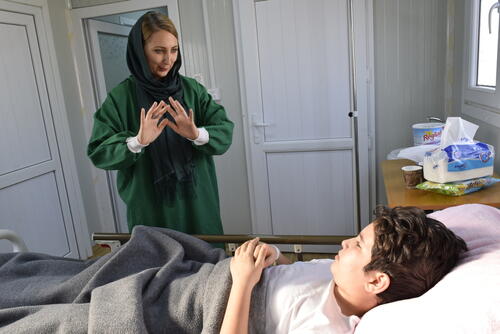
When MSF opened its hospital in East Mosul, were you surprised by the number of patients with antibiotic resistance?
We opened our comprehensive post-operative care hospital in East Mosul in April 2018. During the hospital’s first eight months, around 40 per cent of our patients were admitted with an infection, mainly osteomyelitis and chronic infected wounds.
Among the bacteria that were isolated, the vast majority already showed a multidrug-resistance pattern, automatically reducing their treatment options.
We had to use antibiotics that needed to be administered intravenously, making outpatient care of those patients very challenging. We implemented specific infection prevention and control measures and integrated education activities in patients’ package of care.
We were expecting to have multidrug-resistant infected patients there, but the numbers we’ve seen so far have been beyond our initial expectations and quite concerning.
What consequences does antibiotic resistance have on a patient’s treatment?
A patient with an antibiotic-resistant infection, especially a multidrug-resistant infection, has fewer antibiotic treatment options, and these options are generally more expensive and mostly available as intravenous drugs.
Not all countries or hospitals have access to the expensive ‘latest generation’ antibiotics. Challenges in accessing those antibiotics are more frequent in low and middle-income countries, which complicates their capacity to treat patients in need.
In addition, patients admitted to hospital need to take certain precautions (known as ‘contact precautions’ to isolate them from others) to prevent their multidrug-resistant bacteria spreading to other patients.
Being put in isolation has an effect on their mental health, which is why it is extremely important that they understand what antibiotic resistance is and why they need this treatment. Our mental health and health promotion teams are doing all they can to help these patients cope.
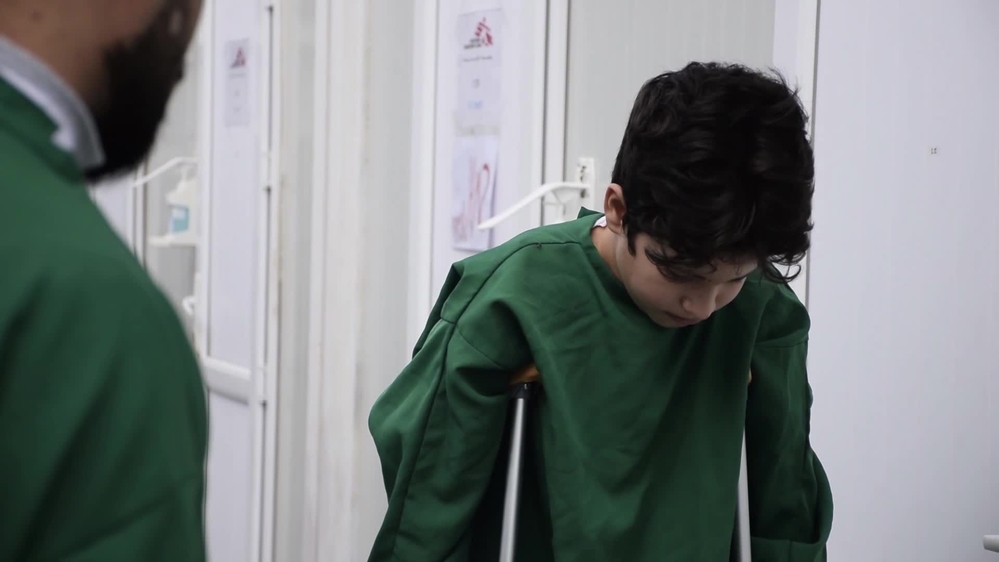
Tackling multidrug resistance in Mosul
We mustn’t wait until it’s too late to tackle this major health challengeErnestina Repetto, MSF advisor on infectious diseases
What are the best ways to prevent antibiotic resistance?
It is possible to act in order to prevent or limit the occurrence of antibiotic resistance on every level. For instance, we always advise patients to use antibiotics only when prescribed by a health professional and to never share or use leftover antibiotics.
We also stress the importance of following basic hygiene rules (washing hands, covering the mouth when coughing etc) – whether you’re a patient or a health professional.
And medical staff also need to take the time to educate patients about how to prevent infections, what antibiotic resistance is, how to take antibiotics correctly and what the dangers are of antibiotic misuse.
On a more global level, it is important to put in place an action plan to tackle antibiotic resistance: to improve the surveillance of antibiotic-resistant infections; to strengthen policies and programmes and implement infection prevention and control measures; to regulate and promote the appropriate use and disposal of quality medicines; and more generally to raise awareness among the population on the impact of antibiotic resistance.
The healthcare industry should also invest more in research and development of new antibiotics, vaccines, diagnostics and other tools. We mustn’t wait until it’s too late to tackle this major health challenge.



